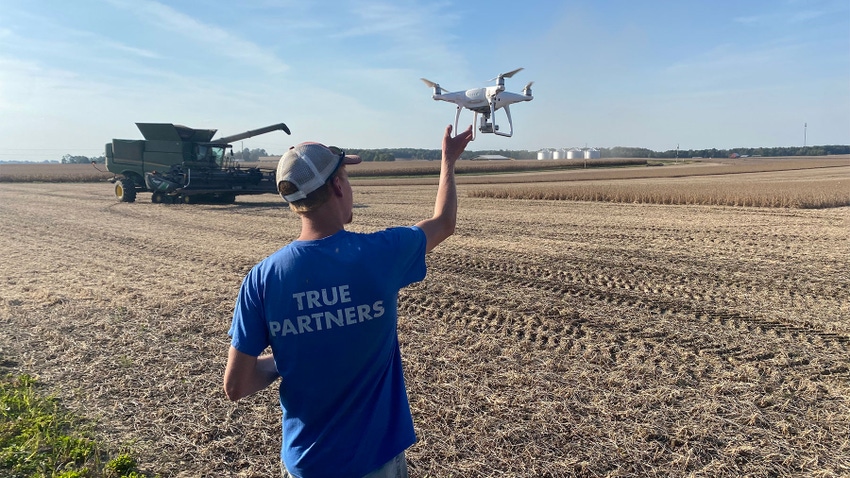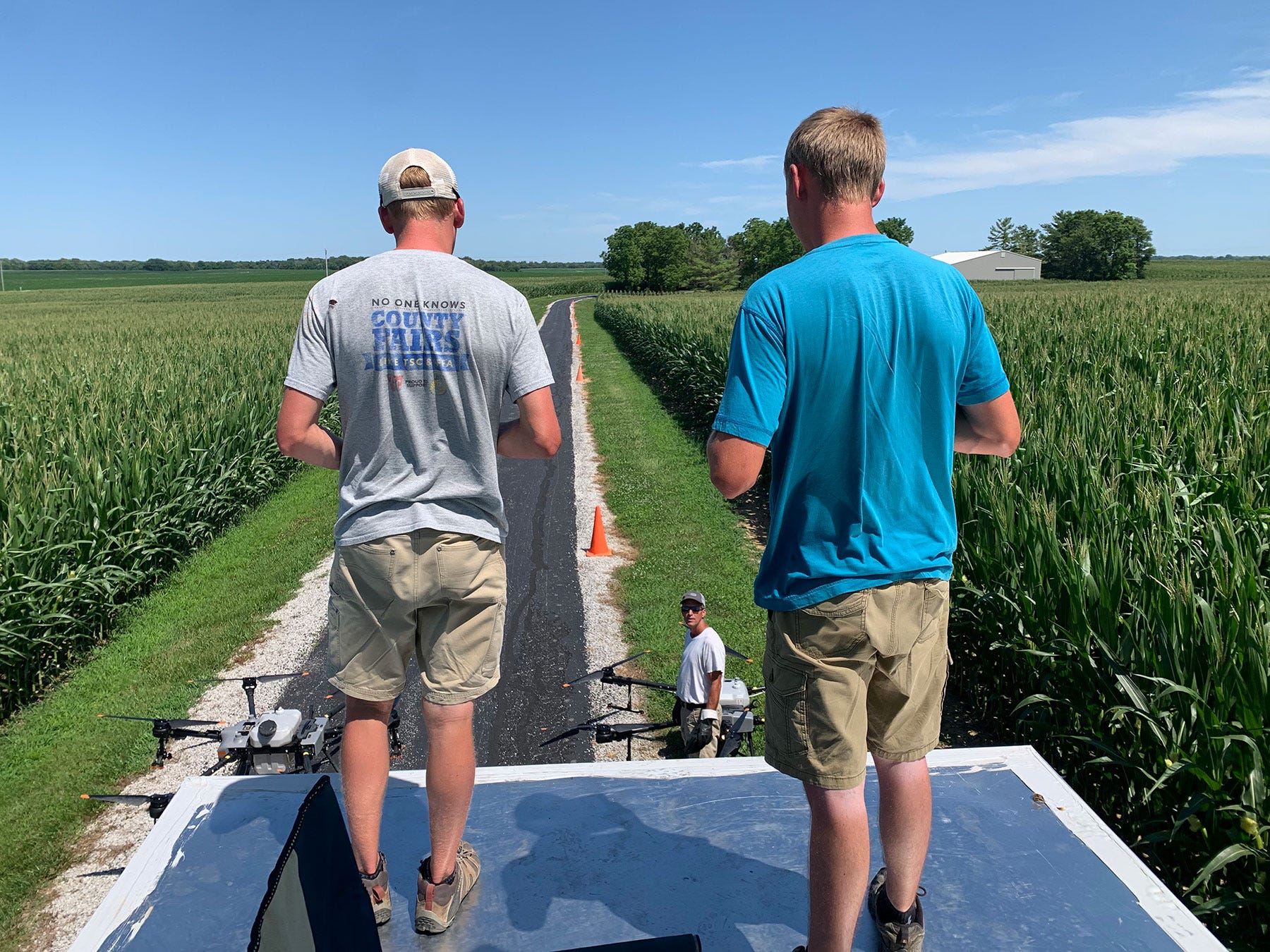January 10, 2024

by Grace Fry
One Indiana farm family is making the most of constantly evolving precision agriculture technology to help them be successful. The Poynter family of Putnam County used to hire spray planes to apply fungicides. When their oldest son, Noah, gained experience with drones, they found they could reach more of their crop and save money in the process.
They now use two of their own drones to spray fungicide on all their corn. They also do some spot-spraying.
“Before, when we were using spray planes, there were 500 acres on rotation that could not be reached because of obstacles that stood in the plane’s way,” Noah Poynter says. That’s what prompted the family to make the switch to drones.
“Spray planes can be something hard to come by,” says John Evans, assistant professor of agricultural and biological engineering at Purdue.
How drone use started
“It started out as creating videos for my mom for Ag Day,” Poynter recalls. He got his first drone in 2015, and has used numerous models throughout the years. One of the ways he’s used his drones is to take videos and pictures. He produces videos and pictures for his business, Noah Poynter Media. He collaborates with different ag companies and even Purdue’s College of Agriculture on some events.
Poynter and his brother got licenses to spray with their drones in 2022. Poynter then started using his drone in 2022 to spray fungicide on their corn.
After the Poynters started using drones, they found they were saving money.
“With drones, your window of operation can be better; you don’t have to wait for the ground to dry,” Evans says.
“Using drones works very well for us,” Poynter says. “We do not have to pay someone and can now get fungicide on corn that has never seen it before.”
He says this is something they will keep doing. Right now, the family has the largest drone available for spraying.
Serious sprayers
The Poynters have two DJI Agras T40 drones, which are 220 pounds at take-off, Poynter says.
Evans explains that drones can compete with ground sprayers and spray planes because they make it possible to cover more acres in one day.
In addition to applying fungicide on all their corn, Poynter does some custom application for a few neighbors and family friends.

FLIGHT PREP: Noah Poynter and his brother, Jonathan, are on a high perch, preparing to send drones into flight.
After two years of spraying with the drones, the Poynter family has seen better results. “The drones are more consistent across the whole field; they are able to maintain a more consistent height above the crops without having to pull up like a plane would,” Poynter says.
Purdue is starting to research how drones will economically impact farmers in the future, Evans notes.
Poynter says they can get all their corn sprayed in about a week. The DJI T40 has a 10.5-gallon tank. Poynter and his family can spray 500 acres on a good day.
“We crossed 40 acres per hour in a good running field,” he says. He gets around 5 acres sprayed on one tank, depending on the rate he flies the drone.
Poynter may have started this practice on the farm by getting the drones, but it takes the whole family to make their operation run smoothly. Each person plays a part in spraying. Poynter and his brother, Jonathan, control the drones while their dad mixes and fills them with chemicals. Poynter’s mom changes batteries.
Passion for ag
Poynter’s involvement in 4-H and FFA contributed to his passion for working with people in agriculture. He really enjoys working with drones. He says it has allowed him to meet new people and teach them about drones as well.
Being a teacher of agriculture outside of the classroom has given Poynter a variety of opportunities, like speaking to a class at Purdue about drones. He also uses his experience advocating for ag and his family’s farm on his social media pages. Poynter enjoys selling drones as a brand dealer because he gets to give lessons and help people earn certification to fly their new drones.
“I really enjoy being able to help others get started with their own drones,” he says.
Fry is a senior in ag communication at Purdue University.
Read more about:
DronesYou May Also Like




